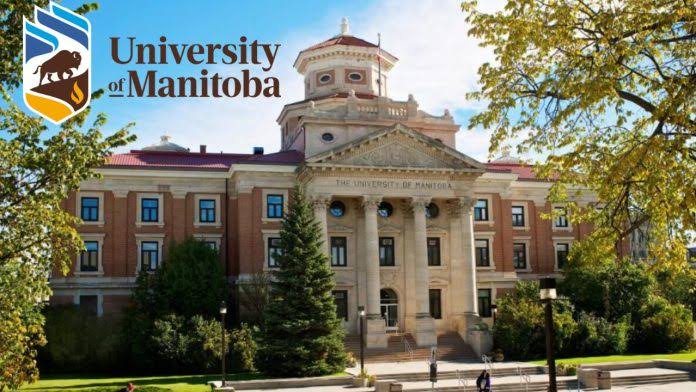Simon Fraser University (SFU), one of Canada’s leading research universities, has built a strong reputation for academic excellence, innovation, and community engagement. To ensure talented students from different backgrounds can access quality education, the university provides a wide range of scholarships, awards, and bursaries. These opportunities are open to both domestic and international students, with different eligibility criteria tailored to academic performance, leadership, financial need, and community involvement. Understanding how these scholarships work and the process of applying for them is crucial for anyone seeking to pursue their studies at SFU.
Types of Scholarships at SFU
Simon Fraser University offers multiple scholarship opportunities, which are generally divided into a few key categories. These provide financial relief while also recognizing outstanding student achievements.
- Entrance Scholarships: Awarded to incoming undergraduate and graduate students with exceptional academic records.
- Merit-Based Scholarships: Given to students who maintain a strong GPA throughout their studies.
- Need-Based Awards: Designed to support students facing financial challenges, ensuring they can continue their studies without interruption.
- Specialized Scholarships: Offered to students in specific faculties or programs, such as sciences, business, or the arts.
- External Awards: Opportunities that are facilitated through SFU but funded by external organizations, governments, or private donors.
This variety ensures that students from different walks of life have access to opportunities that match their qualifications and needs.
General Eligibility Criteria
The eligibility requirements for SFU scholarships vary depending on the type of award. However, some general criteria apply to most scholarships.
- Academic excellence is usually the foundation, with minimum GPA requirements set by the university.
- Students must be enrolled full-time in a degree program at SFU, unless the award specifies otherwise.
- Leadership skills and community involvement are often considered, especially for competitive scholarships.
- International students must hold a valid study permit and be registered in an eligible program.
- For need-based awards, students must demonstrate financial difficulty through documentation.
Understanding these broad requirements helps applicants know where they stand before considering specific awards.
Entrance Scholarships
For incoming students, SFU provides generous entrance scholarships designed to attract top talent. These are particularly beneficial for international students seeking financial support upon admission.
- Eligibility is based on outstanding high school or previous academic records.
- Many entrance scholarships do not require a separate application, as students are automatically considered during admission.
- Some awards, however, may require a statement of purpose, letters of reference, or proof of extracurricular involvement.
- These scholarships can be renewable if students maintain the required GPA during their studies.
This ensures that talented new students receive recognition and encouragement from the beginning of their academic journey.
Merit-Based and Ongoing Scholarships
Once students are enrolled at SFU, they become eligible for a range of continuing scholarships. These are based on consistent academic performance and overall contribution to the university community.
- A minimum GPA is required, usually around 3.5 or higher, depending on the award.
- Students must complete a minimum number of credit hours per semester.
- Extracurricular involvement, such as participation in clubs or research, strengthens applications.
- Many of these scholarships require students to reapply each year, showcasing ongoing achievements.
This motivates students to maintain high academic standards while balancing their involvement in other areas of university life.
Need-Based Awards and Bursaries
Financial difficulty should not prevent students from accessing education at SFU. To address this, the university offers bursaries and awards based on financial need.
- Applicants must provide details of their financial situation, often including proof of income and expenses.
- These awards can cover tuition fees, books, or living expenses.
- International students may also be eligible, though some bursaries prioritize domestic applicants.
- The application process is confidential, ensuring students can apply without stigma.
This system ensures that financial barriers do not stop capable students from completing their education.
Graduate Scholarships and Awards
Graduate students at SFU also benefit from specialized funding opportunities, which can include research grants, teaching assistantships, and scholarships.
- Eligibility often requires strong academic performance and research potential.
- Graduate entrance scholarships support top applicants entering master’s or doctoral programs.
- Research-focused awards may require a detailed proposal and supervisor’s support.
- Many awards are tied to external funding bodies, meaning students must also meet external requirements.
These awards encourage innovation and research excellence, strengthening SFU’s global academic presence.
Application Process
The process of applying for scholarships at SFU is structured but varies depending on the award. Students should carefully read instructions for each scholarship to ensure they meet deadlines and requirements.
- Check eligibility by reviewing the award’s description on SFU’s scholarship database.
- Prepare required documents, which may include transcripts, letters of reference, financial statements, or personal statements.
- Apply online through SFU’s student information system, ensuring all materials are uploaded correctly.
- Monitor deadlines, as many scholarships have strict submission dates.
- Follow up if interviews or additional documentation are requested.
Staying organized throughout the application process improves the chances of success.
Tips for a Strong Application
To maximize scholarship opportunities, students should adopt certain strategies when applying.
- Start applications early to avoid missing deadlines.
- Highlight academic and extracurricular achievements in detail.
- Provide strong letters of recommendation from teachers, mentors, or employers.
- Be clear and concise in personal statements, linking achievements to future goals.
- Apply for multiple scholarships, as eligibility often overlaps.
Taking these steps ensures that students present themselves as strong candidates.
Conclusion
Simon Fraser University scholarships play a vital role in making education accessible, rewarding excellence, and encouraging leadership. With a wide range of opportunities for both undergraduate and graduate students, SFU ensures that financial barriers are minimized while recognizing outstanding achievements. Understanding the eligibility requirements and following the proper application process increases the likelihood of securing support. For both domestic and international students, these scholarships open doors to academic growth, leadership opportunities, and global contributions through research and innovation.




SFU scholarships truly empower students to achieve and contribute globally.
So informative and helpful
It’s all awesome